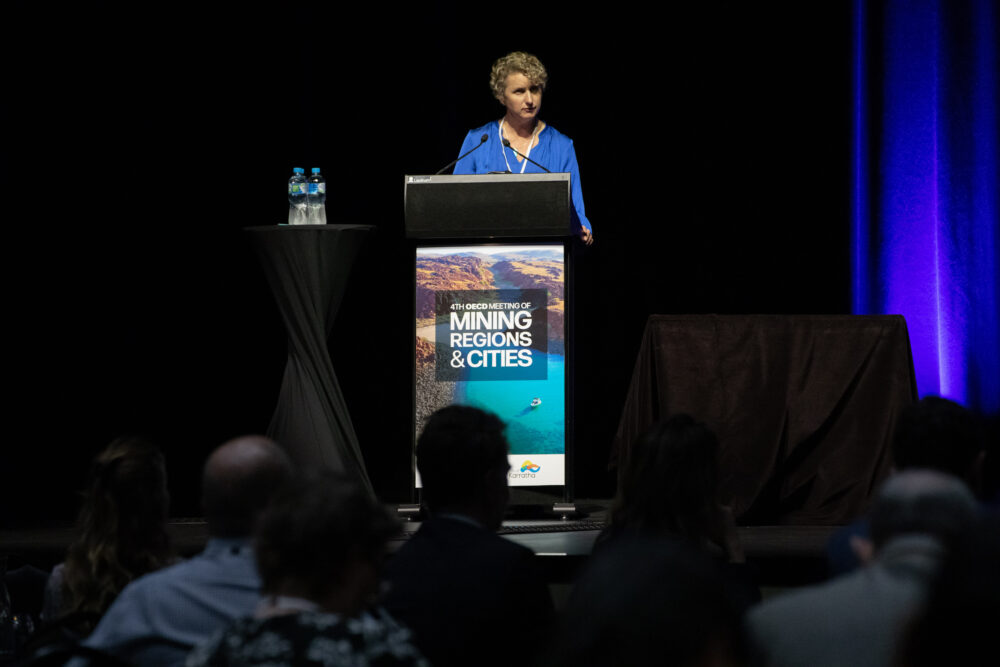Business Foundations presents at the 4th OECD Meeting of Mining Regions and Cities in Karratha.
July 28, 2023
Business Foundations was delighted to speak at the 4th Organisation for Economic Co-operation and Development (OECD) Meeting of Mining Regions and Cities on the 21st of June in Karratha. Project Director Susan O’Byrne represented Business Foundations at the conference, speaking alongside international academics, politicians, and corporate experts to discuss economic diversification and green value chains in creating liveable and sustainable mining communities.
Susan’s speech focussed on the upscaling of local businesses to support the transition to net zero and the role of local procurement. Many of the small and medium-sized enterprises (SMEs) we work with are eager to move towards net zero, but they face challenges due to the financial strain and resource limitations associated with this transformation.
There is no one-size-fits-all solutions for SMEs in the transition to net zero, as each business is unique and encounters barriers beyond their control. The traditional industrial perspective of success, often based solely on growth and profit, disregards other critical factors such as environmental impacts and quality of life in the region.
The industrial world needs to revise its approach to business. With finite natural resources and a pressing deadline to combat climate change, we must adopt a collaborative effort in transitioning to net zero. Larger organisations and the SMEs in their supply chains need to work together, but SMEs often find themselves entangled in the bureaucracy of bigger organisations, struggling to meet various requirements and targets.
Reporting requirements and data collection can be overwhelming for SMEs, and the fear of passing on the costs of decarbonisation to customers while risking losing contracts to cheaper competitors is a major concern. For many businesses, energy consumption represents a significant portion of their greenhouse gas emissions. Access to affordable green energy could be a game-changer, but current green power packages can significantly increase their energy costs, threatening their already slim margins. Installing solar panels is often not possible due to commercial landlords’ reluctance, as they will not recoup the cost of their investment as long as selling power back to the grid continues to make a negligible amount of money. This lack of access to renewable energy further hinders their efforts to reduce emissions.
A collaborative and cooperative approach is vital for both businesses and customers to achieve net zero targets. Treating each other as equals and working together rather than imposing top-down policies and reporting requirements will lead to more effective and efficient solutions.
Transitioning to net zero is an urgent and shared responsibility. SMEs need support and assistance from governments, larger corporations, and customers to successfully navigate this challenging journey. We need to come together to find solutions collaboratively and collectively to strive towards a sustainable and greener future.
Acknowledgement Of Country
Business Foundations acknowledges the traditional custodians throughout Western Australia and their continuing connection to the land, waters and community. We pay our respects to all members of the Aboriginal communities and their cultures; and to Elders both past and present.
Victoria
The Commons
80 Market Street,
South Melbourne VIC 3205
admin@businessfoundations.com.au
Western Australia
Wesley Central
2 Cantonment Street,
Fremantle WA 6160
admin@businessfoundations.com.au


Get In Touch
Have a question or to find out how we can help you, please get in touch.






